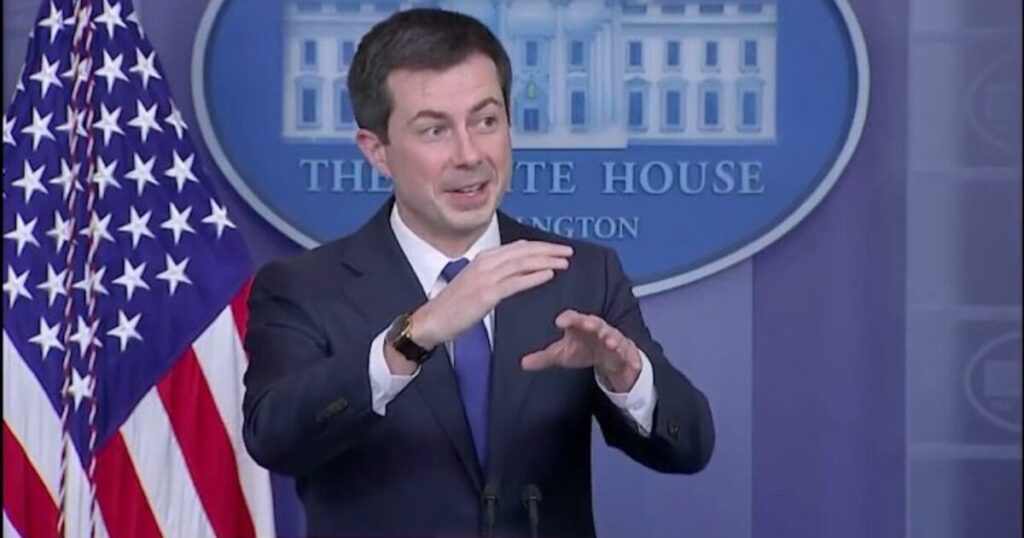Pete Buttigieg, currently serving as the Transportation Secretary under President Joe Biden, is reportedly contemplating a run for the Michigan governorship in 2026. This comes in light of potential shifts within the Michigan political landscape, where several prominent Democrats, including Detroit Mayor Mike Duggan, have declared intentions to enter the race as the state prepares for gubernatorial elections once Gretchen Whitmer’s term concludes. Buttigieg has garnered attention for his political journey, particularly for his departure from the 2020 primary to assist Biden’s candidacy, reflecting a pattern of political maneuvering often seen in the Democratic party.
Originally from Indiana, Buttigieg has expressed a personal connection to Michigan, highlighting that he grew up near the state line and has maintained ties to the area over the years. He recently moved to Michigan to be closer to his partner’s family, indicating a deeper commitment to the state that may influence his political ambitions. Buttigieg’s narrative is also shaped by personal experiences, such as the challenges he faced when his child was hospitalized in Grand Rapids, underscoring the emotional ties he has to Michigan. As he contemplates his political future, Buttigieg assures that the state feels like home to him, which may resonate with voters seeking a more localized connection.
In a broader context, Michigan’s political scene is heating up, with key figures like attorney general Dana Nessel and Lieutenant Governor Garlin Gilchrist also potential candidates for governor. Duggan’s decision to run as an Independent signals a strategic shift in the political dynamics, particularly after the Republican Party’s successes in the state during the 2024 elections. This landscape sets the stage for Buttigieg’s potential candidacy, which many sources suggest could be aimed not only at the governor’s mansion in 2026 but potentially even the White House in 2028.
Amidst this speculation, Buttigieg’s professional focus has also garnered attention. He has made headlines for addressing transportation issues with a unique lens, particularly his assertion that systemic racism plays a role in roadway fatalities across America. He has claimed that traffic deaths, which number approximately 40,000 annually, reflect deep-seated racial disparities, affecting marginalized communities disproportionately. By framing transportation safety as intertwined with social justice, Buttigieg aims to elevate these concerns in public discourse, although critics often question the depth of his engagement with these complex societal issues.
Yet, Buttigieg’s critics are vocal about his perceived lack of effectiveness in his current role as Transportation Secretary, suggesting that his political rise, marked by high-profile posts, has not been accompanied by significant accomplishments. His rhetoric around issues like roadway safety has drawn skepticism, with detractors labeling him as a political figure who has benefited from some political capital without delivering tangible results for the portfolios he oversees. This perspective contributes to an overall narrative of Buttigieg as a polarizing figure whose ambitions may outstrip his demonstrated capabilities.
As the 2026 governor’s race approaches, Pete Buttigieg’s trajectory remains uncertain but intriguing. Engaging with key Democratic figures in Michigan as he deliberates his political future, the forthcoming election could serve as a pivotal moment for him. The intersection of personal connection, social justice advocacy, and potential political aspirations will undoubtedly shape the narrative surrounding his candidacy—if he decides to pursue it—and influence Michigan’s political landscape in the years to come.

